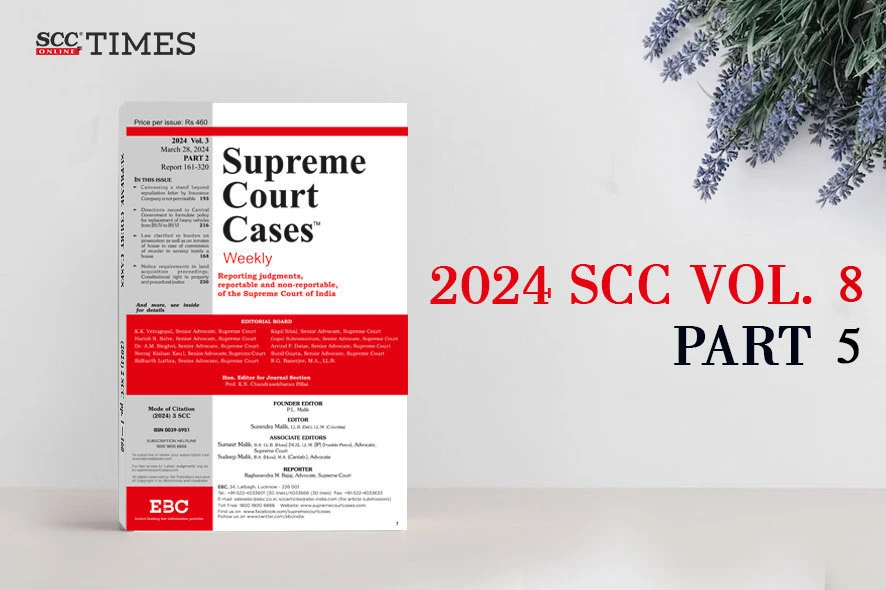Companies Act, 1956 — Ss. 31(2), 94 and 97 — Cap of stamp duty of Rs 25 lakhs on increase in share capital under the Bombay Stamp Act, 1958: Column 1 of Schedule of the Bombay Stamp Act, 1958 describes the instrument on which stamp duty is to be levied whereas Column 2 prescribes the stamp duty payable. Further, Column 1 has to be construed as describing three situations or contingencies relating to Articles of Association i.e. “where the company has no share capital or nominal share capital or increased share capital” and in cases where a company has no share capital it would have to pay no stamp duty and if a company is submitting its articles for the first time, stamp duty would be calculated as per the nominal share capital. Further, the effect of adding “increased share capital” is that stamp duty will be charged on subsequent increases in the authorised share capital, subject to the maximum cap. Thus, the ceiling of Rs 25 lakhs in Column 2 is applicable on Articles of Association and the increased share capital therein, not on every increase individually. Held, in case stamp duty equivalent to or more than the cap has already been paid, no further stamp duty can be levied, [State of Maharashtra v. National Organic Chemical Industries Ltd., (2024) 8 SCC 687]
Consumer Protection — Consumer/Consumer Dispute/Locus Standi — “Commercial purpose”: Complaint by partner of partnership firm against legal heirs of other deceased partner, for recovery of investment Made, not maintainable, [Annapurna B. Uppin v. Malsiddappa, (2024) 8 SCC 700]
Delhi Special Police Establishment Act, 1946 (Central Act 25 of 1946) — S. 4: Existence and extent of superintendence/control of Union of India over Delhi Special Police Establishment (CBI), clarified, [State of W.B. v. Union of India, (2024) 8 SCC 767]
Environment Law — Forests, Wildlife and Zoos —Demarcation/ Determination/Identification of Forest Land: In this case, permission was sought by the applicant for constructing a health/eco-resort on certain plots. Land/plots owned by the applicant whether formed part of the Panchmarhi Wildlife Sanctuary and whether applicant had acquired good title to land/plots in question, determined, [T.N. Godavarman Thirumulpad, In re v. Union of India, (2024) 8 SCC 642]
Gujarat Provincial Municipal Corporation Act, 1949 (59 of 1949) — Ss. 139(1)(b)(iii) and 140 — Property tax — Liability to pay, on purchased property: Purchaser is liable to pay property tax from date of acquisition of ownership, [Municipal Corpn., Rajkot v. State of Gujarat, (2024) 8 SCC 759]
Insurance Act, 1938 — S. 45 — Import and effect of S. 45 — Explained — Non-disclosure, as ground for repudiation of life insurance claim — Burden of proof regarding: Repudiation of life insurance claim on the premise that the deceased-applicant withheld information regarding several other insurance policies is not valid, when such assertion was not proved by insurer, [Mahakali Sujatha v. Future Generali India Life Insurance Co. Ltd., (2024) 8 SCC 712]
M.P. Foreign Liquor Rules, 1996 — R. 19 (as substituted on 29-3-2011) — Substituted R. 19 i.e. reduced penalty from four times the maximum duty payable to an amount not exceeding the duty payable on foreign liquor: R. 19 provided for penalty that could be imposed during the relevant licence period of 2009- 2010 and was about four times the maximum duty payable on foreign liquor, however on 29-3-2011, R. 19 was substituted by an amendment and penalty reduced. Held, the purpose of the amendment is to achieve a proper balance between crime and punishment or the offence and penalty. Further, classifying offenders into before or after the amendment for imposing higher and lower penalties does not serve any public interest, [Pernod Ricard (India) (P) Ltd. v. State of M.P., (2024) 8 SCC 742]
Modern insolvency legislation: This article deals with the conceptual underpinnings of “order of priority” and the principles governing the manner of distribution under resolution plans in the context of corporate insolvency. It also explores the many anomalies in the recent judgment of the Hon’ble Madras High Court in National Sewing Thread Co. Ltd. v. TANGEDCO, 2024 SCC OnLine Mad 2330, Drafting a modern insolvency legislation: Race of diligence and order of priority in distribution by [R. Venkatavaradan and Saai Sudharsan Sathiyamoorthy, (2024) 8 SCC (J-1)]
Penal Code, 1860 — S. 494 — Marrying again during lifetime of husband or wife: Essential ingredients of offence under S. 494 IPC, reiterated, [S. Nitheen v. State of Kerala, (2024) 8 SCC 706]
Rent Control and Eviction — Mesne Profits/Compensation/Occupation charges/Damages for wrongful use/trespass — Liability to pay “mesne profits”: Tenant would be liable to pay mesne profits to landlord for period he had been a “tenant at sufferance”. “Tenant at sufferance” is a tenant who enters upon land by lawful title but continues in possession after title has ended, [Bijay Kumar Manish Kumar (HUF) v. Ashwin Bhanulal Desai, (2024) 8 SCC 668]
Right to Information Act, 2005 — S. 12(4) and S. 15(4) — Power to constitute Benches of Commission — Vesting of, in Chief Information Commissioner (CIC) — Absence of an explicit provision for constituting benches: The absence of an explicit provision for Benches does not negate the CIC’s authority to constitute them, as such powers are implicitly included within the scope of the CIC’s general superintendence and management responsibilities. Further, the broad language of the RTI Act indicates an intention to grant the CIC comprehensive authority to ensure the effective and efficient functioning of the Commission, [Central Information Commission v. DDA, (2024) 8 SCC 812]
Tort Law — Compensation/Damages — Eggshell skull rule: Meaning of eggshell skull rule, explained. Law clarified on requisites for applicability of Eggshell skull rule, [Jyoti Devi v. Suket Hospital, (2024) 8 SCC 655]






